6 - 11 February 2020. Rome. The Global Farmers’ Forum is an on-going, bottom-up process of consultation and dialogue between organizations of smallholder farmers and rural producers from all over the world, IFAD and our Member States.
The Forum brought together more than 80 farmers' leaders from around the world, representing millions of smallholders and rural producers, who have interacted with IFAD and partner institutions. See: #fafo2020
Extract of the programme:
Parallel thematic working groups:
Side event - ABC fund: an innovative financing tool
The ABC Fund has a blended finance approach aiming at de-risking investments to make them attractive to private investors through a first-loss equity structure, targeted technical assistance and strong pipeline development The following institutions have made commitments of approximately EUR 50 million to the ABC Fund – the European Union and the African, Caribbean and Pacific Group of States (EU/ACP), the government of Luxembourg and the Alliance for a Green Revolution in Africa (AGRA). In addition, IFAD provided grant
financing of US$3.5 million, together with the EU/ACP, for a technical assistance facility (TAF). This technical assistance is managed by Agriterra. The ABC Fund is already operational. To date, over 15 investment proposals were reviewed by the ABC Fund investment committee for projects in Côte d’Ivoire, Kenya, Uganda and Mali, Ghana. The first investment was disbursed in December 2019, supporting a cocoa cooperative in Côte d’Ivoire to help up to 2,700 small-scale producers secure better access to markets.
The Forum brought together more than 80 farmers' leaders from around the world, representing millions of smallholders and rural producers, who have interacted with IFAD and partner institutions. See: #fafo2020
Extract of the programme:
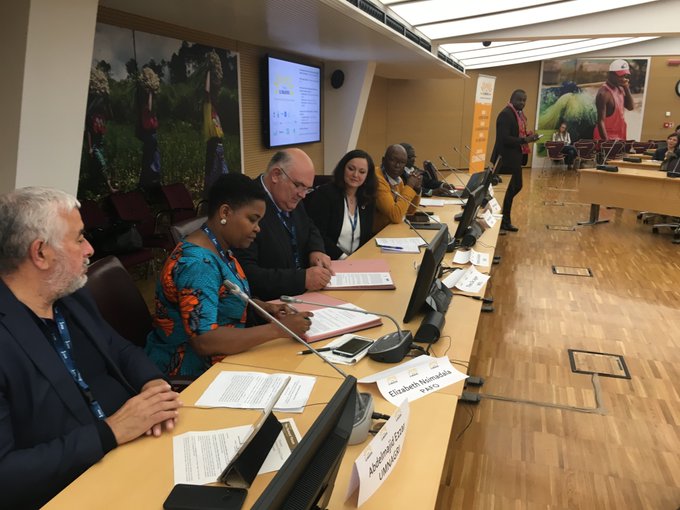 |
| @PAFOAfrica signs the agreement to officially join the farmers driven climate change alliance |
- Climate change and agroecology: what opportunities for further partnership between FOs and IFAD
- IFAD12 new instruments (ASAP+ and Private Sector)
- United Nations Decade of Family Farming and the road map for the Food Systems Summit 2021
- Gender equality and women’s leadership in agriculture
- Youth in agriculture and rural development
Special plenary session: Towards the Food Systems
Summit 2021
- Presentation and discussion of the report “Farmers and food systems, what future for small-scale agriculture”.(Environmental Change Institute, University of Oxford)
- FAFO exchange with Agnes Kalibata, special envoy of the United Nations Secretary-General, on the road map to the Food Systems Summit 2021
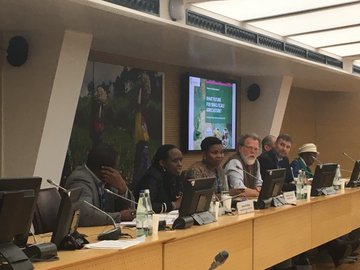
Side event - ABC fund: an innovative financing tool
The ABC Fund has a blended finance approach aiming at de-risking investments to make them attractive to private investors through a first-loss equity structure, targeted technical assistance and strong pipeline development The following institutions have made commitments of approximately EUR 50 million to the ABC Fund – the European Union and the African, Caribbean and Pacific Group of States (EU/ACP), the government of Luxembourg and the Alliance for a Green Revolution in Africa (AGRA). In addition, IFAD provided grant
financing of US$3.5 million, together with the EU/ACP, for a technical assistance facility (TAF). This technical assistance is managed by Agriterra. The ABC Fund is already operational. To date, over 15 investment proposals were reviewed by the ABC Fund investment committee for projects in Côte d’Ivoire, Kenya, Uganda and Mali, Ghana. The first investment was disbursed in December 2019, supporting a cocoa cooperative in Côte d’Ivoire to help up to 2,700 small-scale producers secure better access to markets.
- Mr Frank Rubio, Senior Technical Advisor for ABC Fund, IFAD
- Mr. Emanuele Santi, Fund Manager ABC Fund, Bamboo Capital Partners
- Mr Jerry Parkes, Managing Partner, Injaro (via VC)
- Ms. Agnes Janszen, Manager TA Facility of ABC Fund, Agriterra
- Mr. Matthew Brooke, Policy Officer, European Commission
- Ms. Yvonne Semba Chileshe, Expert - Commodities and value chain development
Side event - The Climakers: Farmers driven Climate Change Agenda
Side event - Branding of family farming products: sharing experiences and development opportunities
Side event - UN Declaration on the Rights of Peasants
Side event - Farmers’ Organizations Profiling and Digital Platforms
Side event - Regional Grant Programs supporting FOs
Side event - Territorial markets as a basis for building sustainable, resilient, nutritious food systems
Side event - The United Nations Decade for Family Farming (UNDFF)
Side event - Youth in agriculture An organic perspective
Side event - Financing Farmers’ Organizations’ Investments and businesses: sharing experiences and initiatives
Related:
Report on “Farmers and food systems, what future for small-scale agriculture”.
As we trundle through our supermarkets, or wander through an open market, looking for good deals we all to easily take for granted the food we purchase and the farmers who produce it. Most of what the world eats is produced by family farms and 90% of all farms are family run. These family farms vary from large commercial operations to tiny plots of land where producing enough to even feed the family is impossible.
A profound transformation is needed in how food systems function and in small-scale agriculture. Drawing on latest data, the report assesses the state of small-scale agriculture and the implications of structural changes in food systems for their future. It provides a set of conceptual framings that can help to unpack the complex issues around small-scale agriculture, highlight where more data and understanding is needed, and provides a reference point for debate.
Moving forward will require a much better country-level analysis of the structure of small-scale agriculture and rural poverty, coupled with long-term visions and strategies for transformation set within a wider food systems framework. Enhanced national level multi-stakeholder and cross-sector foresight and scenario processes, underpinned by better data, are needed to develop such visions and strategies. Ultimately, greater political commitment is required to bring about change. This calls for stronger and more influential coalitions for change, and greater public understanding and support.
Side event - Branding of family farming products: sharing experiences and development opportunities
Side event - UN Declaration on the Rights of Peasants
Side event - Farmers’ Organizations Profiling and Digital Platforms
Side event - Regional Grant Programs supporting FOs
Side event - Territorial markets as a basis for building sustainable, resilient, nutritious food systems
Side event - The United Nations Decade for Family Farming (UNDFF)
Side event - Youth in agriculture An organic perspective
Side event - Financing Farmers’ Organizations’ Investments and businesses: sharing experiences and initiatives
Related:
Report on “Farmers and food systems, what future for small-scale agriculture”.
As we trundle through our supermarkets, or wander through an open market, looking for good deals we all to easily take for granted the food we purchase and the farmers who produce it. Most of what the world eats is produced by family farms and 90% of all farms are family run. These family farms vary from large commercial operations to tiny plots of land where producing enough to even feed the family is impossible.
A profound transformation is needed in how food systems function and in small-scale agriculture. Drawing on latest data, the report assesses the state of small-scale agriculture and the implications of structural changes in food systems for their future. It provides a set of conceptual framings that can help to unpack the complex issues around small-scale agriculture, highlight where more data and understanding is needed, and provides a reference point for debate.
Moving forward will require a much better country-level analysis of the structure of small-scale agriculture and rural poverty, coupled with long-term visions and strategies for transformation set within a wider food systems framework. Enhanced national level multi-stakeholder and cross-sector foresight and scenario processes, underpinned by better data, are needed to develop such visions and strategies. Ultimately, greater political commitment is required to bring about change. This calls for stronger and more influential coalitions for change, and greater public understanding and support.

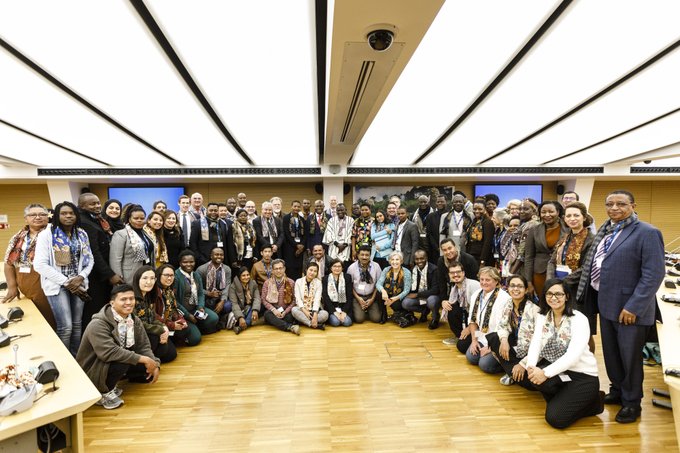
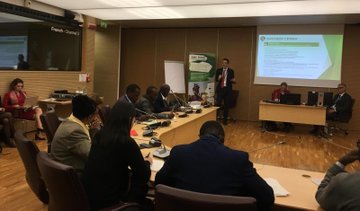
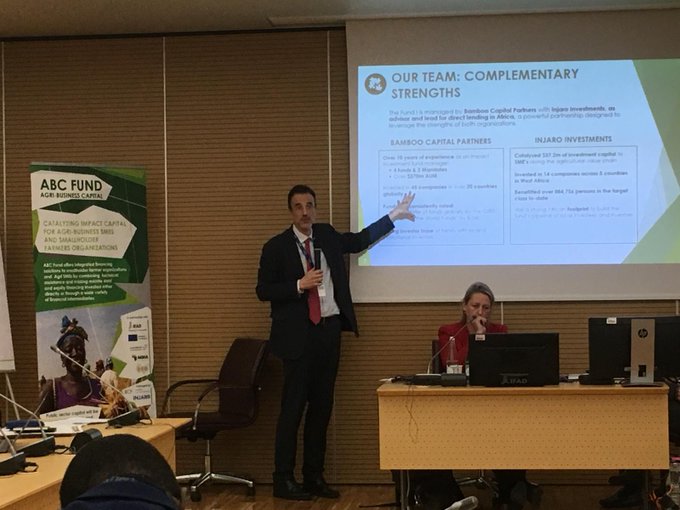
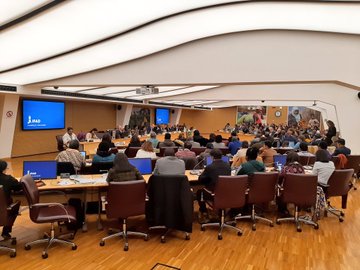

No comments:
Post a Comment